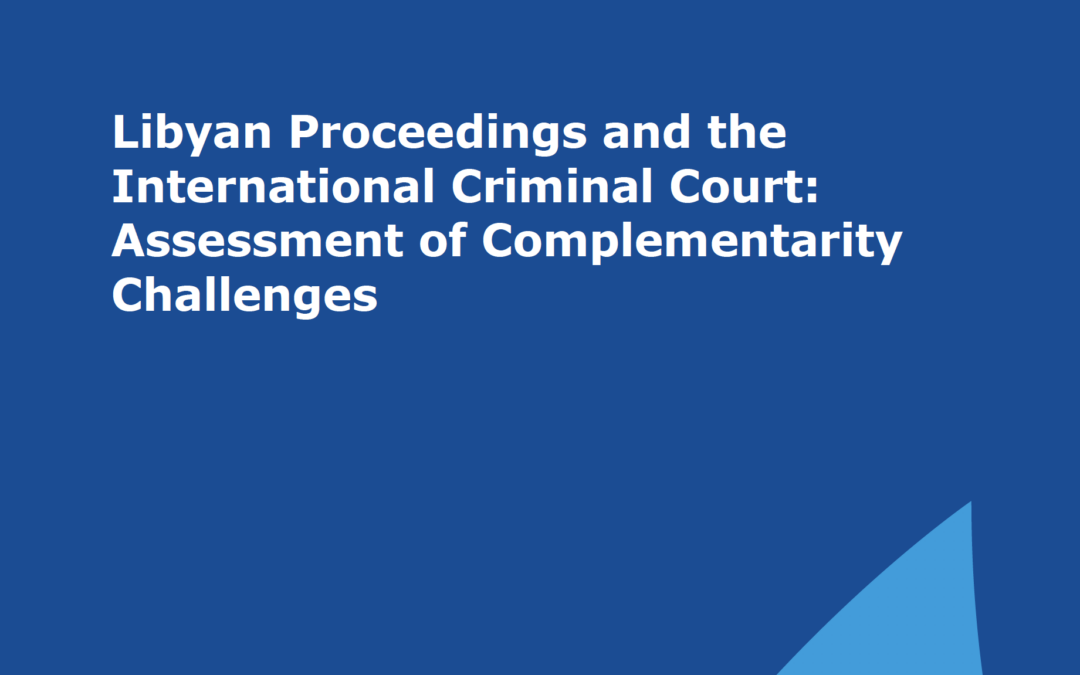
Apr 8, 2020
In a briefing paper analyzing complementarity challenges between Libyan proceedings and the International Criminal Court (ICC), the ICJ today called for full compliance with Libya’s obligations under international law to penalize, investigate and prosecute crimes under international law.
The ICJ calls for greater consideration to be given to fair trial violations and other shortcomings of the Libyan criminal justice system in the context of future cases and in any review of admissibility decisions before the ICC.
The briefing examines the standards applied by the ICC in determining the admissibility of the Libya-related cases, and assesses such standards in light of Libya’s obligations under international law and the findings of the ICJ’s report Accountability for Serious Crimes under International Law in Libya: An Assessment of the Criminal Justice System.
International fair trial standards are extensively violated in Libya, as testified by the case against 37 former Gadhafi officials, whose fair trial rights have been breached throughout the domestic proceedings.
Moreover, in prominent cases such as that concerning the 1996 massacre of 1200 prisoners in the Abu Salim prison, domestic courts failed to ensure accountability for crimes under international law by applying statutes of limitations.
The ICC has considered admissibility challenges brought by Libya in respect of the cases against Saif al-Islam Gadhafi (Muammar Gadhafi’s son) and Abdullah Al-Senussi (former head of the Military Intelligence), determining Gadhafi’s case admissible and Al-Senussi’s case inadmissible.
Warrants of arrest remain outstanding against Al-Tuhamy Mohamed Khaled (former head of the Libyan Internal Security Agency) and Mahmoud Mustafa Busayf Al-Werfalli (commander in the Al-Saiqa Brigade in the Libyan Arab Armed Forces), who are both at large.
“Libya’s criminal justice system is unable to ensure accountability for crimes under international law,” said Said Benarbia, the ICJ’s MENA Programme Director.
“To do so, courts should be able to operate free from fear or intimidation, and to apply laws that fully comply with Libya’s obligations under international law, including those on fair trial rights.”
The briefing highlights that, in addressing the admissibility of cases before the ICC, full consideration should be given to whether Libya fulfils its international obligations in terms of penalization of crimes under international law and guaranteeing that domestic proceedings are carried out in line with international fair trial standards.
“Until the Libyan proceedings are able to dispense justice consistent with international law and standards, impunity will continue to prevail in the country,” said Kate Vigneswaran, the ICJ’s MENA Programme Senior Legal Adviser.
“To contribute to dismantling such impunity, proceedings before the ICC should fully take into account and address fair trial violations and other obstacles that continue to impede the effective functioning of the Libyan proceedings.”
Contacts
Said Benarbia, Director of the ICJ Middle East and North Africa Programme, t: +41 22 979 3817; e: said.benarbia(a)icj.org
Kate Vigneswaran, ICJ Senior Legal Adviser, t: +31 62 489 4664, e: kate.vigneswaran(a)icj.org, twitter: @KateVigneswaran
Full English language briefing paper, in PDF: Libya-ICC assessment-Advocacy-Analysis Brief-2020-ENG
Full Arabic language briefing paper, in PDF: Libya-ICC assessment-Advocacy-Analysis brief-2020-ARA
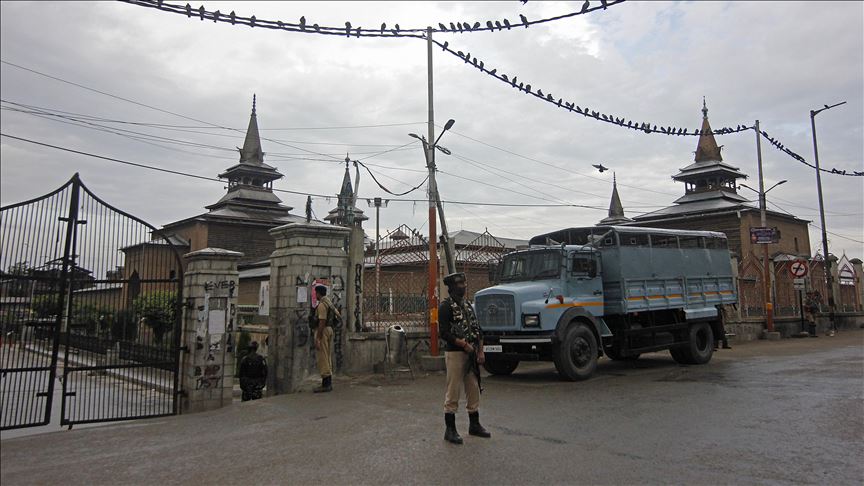
Apr 6, 2020 | News
ICJ has joined other NGOs in welcoming steps taken by Indian authorities to decongest prisons in an effort to contain the novel coronavirus (COVID-19). The Government should release all unjustly detained prisoners as a matter of priority.
The joint statement read as follows:
The fate of hundreds of arbitrarily detained Kashmiri prisoners hangs in the balance as the number of confirmed cases of coronavirus in India passes the 4,000 mark and many more are likely to remain undetected or unreported.
Inmates and prison staff, who live in confined spaces and in close proximity with others, remain extremely vulnerable to COVID-19. While the rest of the country is instructed to respect social isolation and hygiene rules, basic measures like hand washing – let alone physical distancing – are just not possible for prisoners.
Under international law, India has an obligation to ensure the physical and mental health and well-being of inmates. However, with an occupancy rate of over 117%, precarious hygienic conditions and inadequate health services, the overcrowded Indian prisons constitute the perfect environment for the spread of coronavirus.
In a bid to contain the spread of the disease among inmates and prison staff, the Supreme Court asked state governments on 23 March 2020 to take steps to decongest the country’s prison system by considering granting parole to those convicted or charged with offenses carrying jail terms of up to seven years.
The United Nations High Commissioner for Human Rights Michelle Bachelet also called on governments to “examine ways to release those particularly vulnerable to COVID-19, among them older detainees and those who are sick, as well as low-risk offenders.”
Various state governments in India have now begun releasing detainees. However, there is a concern that hundreds of Kashmiri youth, journalists, political leaders, human right defenders and others arbitrarily arrested in the course of 2019, including following the repeal of Article 370 of the Indian Constitution on 5 August 2019, will not be among those benefiting from the measure. Article 370 provided special status to Jammu & Kashmir.
Human rights groups and UN experts have repeatedly called for the release as a matter of priority of “those detained without sufficient legal basis, including political prisoners and others detained simply for expressing critical or dissenting views.”
Last month, the Ministry of Home Affairs revealed that 7,357 persons had been arrested in Jammu & Kashmir since 5 August 2019. While the majority have since been released, hundreds are still detained under sections 107 and 151 of the Criminal Procedure Code, the Unlawful Activities (Prevention) Act (UAPA), and the Public Security Act (PSA), a controversial law which allows the administrative detention of any individual for up to two years without charge or trial. Reportedly, many of those still detained are minors.
Many of those detained were transferred to prisons all across India, thousands of kilometers away from their homes, hampering their lawyers’ and relatives’ ability to visit them. Some of the families, often too poor to afford to travel, have been left with nothing but concerns over the physical and psychological well-being of their loved ones.
Mr. Miyan Abdul Qayoom, a human rights lawyer and President of the Jammu & Kashmir High Court Bar Association, was also cut off from his family and lawyer. Detained since 4 August 2019 in India’s Uttar Pradesh State, he was transferred to Tihar jail in New Delhi following a deterioration of his health. Mr. Qayoom, 70, suffers from diabetes, double vessel heart disease, and kidney problems.
Mr. Ghulam Mohammed Bhat was also transferred to a jail in Uttar Pradesh. In December 2019, he died thousands of kilometers away from his home at the age of 65 due to lack of medical care.
With the entire country in a lockdown and a ban on prison visits for the duration of the outbreak imposed, inmates are more isolated from the outside world than ever. In such a situation, prison authorities must ensure that alternative means of communication, such as videoconferencing, phone calls and emails, are allowed. However, this has not often been the case. Especially in Jammu & Kashmir, where full internet services are yet to be restored after a communication blackout imposed on the population on 5 August 2019, contacts between inmates and the outside world are even more limited.
- Amnesty International India
- Asian Forum for Human Rights and Development (FORUM-ASIA)
- CIVICUS: World Alliance for Citizen Participation
- International Commissions of Jurists (ICJ)
- International Federation for Human Rights (FIDH)
- World Organisation Against Torture (OMCT)
To download the statement with detailed information and key recommendations, click here.
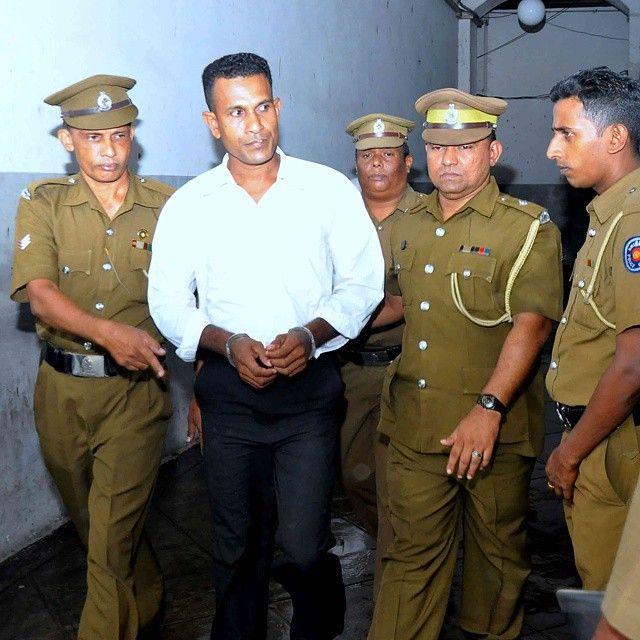
Mar 27, 2020 | News
The ICJ today condemned the Presidential pardon granted to murder convict Sunil Ratnayake, Former Staff Sergeant of the Sri Lankan Army.
Sri Lankan President Gotabaya Rajapaksa pardoned Former Staff Sergeant Sunil Ratnayake who was convicted in 2015 for the murder of eight Tamil civilians, including three children, in Mirusuvil in April 2000. The conviction and death sentence was affirmed by the Supreme Court of Sri Lanka in 2019.
The ICJ said that the pardon cast serious doubt upon the Government’s commitment to accountability and the rule of law in Sri Lanka.
While the ICJ welcomes the lifting of the death sentence, the full pardon and extinguishment of serious punishment constitutes a blow to the victims of these violations.
“The prosecution of Staff Sergeant Ratnayake for his involvement in the killing of civilians, including children, at Mirusuvil was a rare exception to the usual lack of accountability for human rights violations committed during the conflict,” said Frederick Rawski, ICJ’s Regional Director for Asia and the Pacific. “Such a pardon is incompatible with international standards relating to impunity and access to justice, and reinforces the well-founded public perception that the military is exempt from any form of accountability, even for the most heinous crimes”.
The ICJ stressed that for serious crimes such as unlawful killing of civilians, there should be no amnesties or pardons that are inconsistent with the right to victims of such violations to reparation.
“It is particularly distressing that a presidential pardon of this nature has been issued at a time when the nation is dealing with the potentially devastating impacts of the COVID-19 outbreak,” said Rawski. “The government would be advised to focus on responding to legitimate calls to release prisoners of minor offences, and take measures to address prison congestion, rather than taking cynical advantage of the crisis to free convicted war criminals.”
It is noteworthy that during his presidential campaign, Gotabaya Rajapaksa had made repeated pledges to release “war heroes languishing in prison over false charges and cases”. The ICJ is deeply concerned that this presidential pardon may be the first of the many to come.
The ICJ has consistently raised concerns about the severe lack of accountability regarding crimes perpetrated by the Sri Lankan armed forces – most recently before the Human Rights Council in February 2020.
The ICJ opposes capital punishment in all cases without exception as a violation of right to life and to freedom from cruel, inhuman or degrading punishment.
Contact
Frederick Rawski, ICJ’s Asia Pacific Regional Director, t: +66 2 619 84 77; e: frederick.rawski(a)icj.org
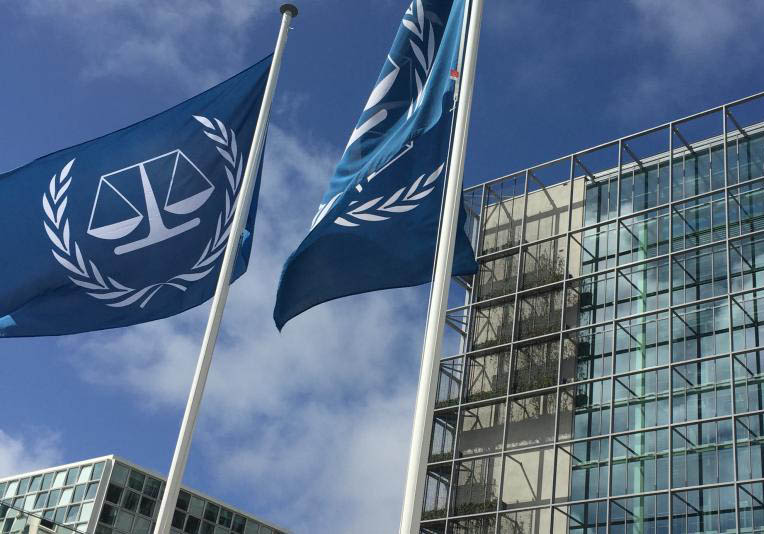
Mar 18, 2020
In amicus curiae observations submitted to the International Criminal Court (ICC) on 16 March 2020, the ICJ argued that the Court had competency to exercise its jurisdiction over the whole of the Palestinian territory, including the West Bank, East Jerusalem and Gaza.
The ICJ submitted that competing claims challenging Palestine statehood under international law and its sovereignty over the territory were without merit.
The ICJ emphasized that failure to accept jurisdiction in respect of the State of Palestine, a State Party to the Rome Statute of the ICC, would run counter to the Statute’s object and purpose of combatting impunity for serious crimes under international law.
The amicus observations were filed in response to the ICC Prosecutor’s request to the Court to rule on “the scope of the Court’s territorial jurisdiction in the situation of Palestine and to confirm that the ‘territory’ over which the Court may exercise its jurisdiction … comprises the West Bank, including East Jerusalem, and Gaza.”
“Palestine is a State under international law, satisfying recognized international law criteria for statehood, displaying and effectively exercising State authority over parts of the Palestinian territory and demonstrating capacity to enter into relations with other sovereign States and exercise treaty-making powers. Israel’s decades-long occupation of the Palestinian territory has no bearing over the ultimate question of Palestine’s sovereignty and statehood, and, thus, over the ICC’s jurisdiction,” said Said Benarbia, the ICJ’s MENA Programme Director.
The ICJ also submitted that moves by Israel to annex portions of Palestinian territory and thereby nullify the right of the Palestinian people to self-determination should not be accepted by the Court as a basis for determining Palestine’s statehood status.
The ICJ also urged the Court to reject claims that Palestine has no jurisdiction over “Area C” – which pursuant to the 1995 Oslo II Accord was placed under full Israeli control for security purposes – East Jerusalem, and Israeli citizens, and thus cannot validly delegate such jurisdiction to the Court.
“The Court can and should exercise jurisdiction over all individuals responsible for crimes under the Rome Statute committed in the Palestinian territory, irrespective of the nationality of the accused or the victims. By exercising such jurisdiction, the Court will fulfil its very raison d’être of combating impunity and holding those who bear responsibility for the most serious crimes under international law to account,” said Kate Vigneswaran, the ICJ’s MENA Programme Senior Legal Adviser.
Because the State of Palestine is a party to the Rome Statute, the ICC is entitled to exercise its jurisdiction over the serious crimes of genocide, crimes against humanity, and war crimes committed on its territory by persons of any nationality, including Israelis and Palestinians. Palestinian nationals also fall under its jurisdiction for any crimes committed anywhere in the world.
Contact:
Said Benarbia, Director, ICJ Middle East and North Africa Programme, t: +41-22-979-3817; e: said.benarbia(a)icj.org
Kate Vigneswaran, Senior Legal Adviser, ICJ Middle East and North Africa Programme, t: +31-62-489-4664; e: kate.vigneswaran(a)icj.org
Palestine-Amicus brief ICC-Advocacy-Legal submission-2020-ENG (Amicus brief, in PDF)
Palestine-ICC Amicus-News-Press releases-2020-ARA (Press release in Arabic, PDF)
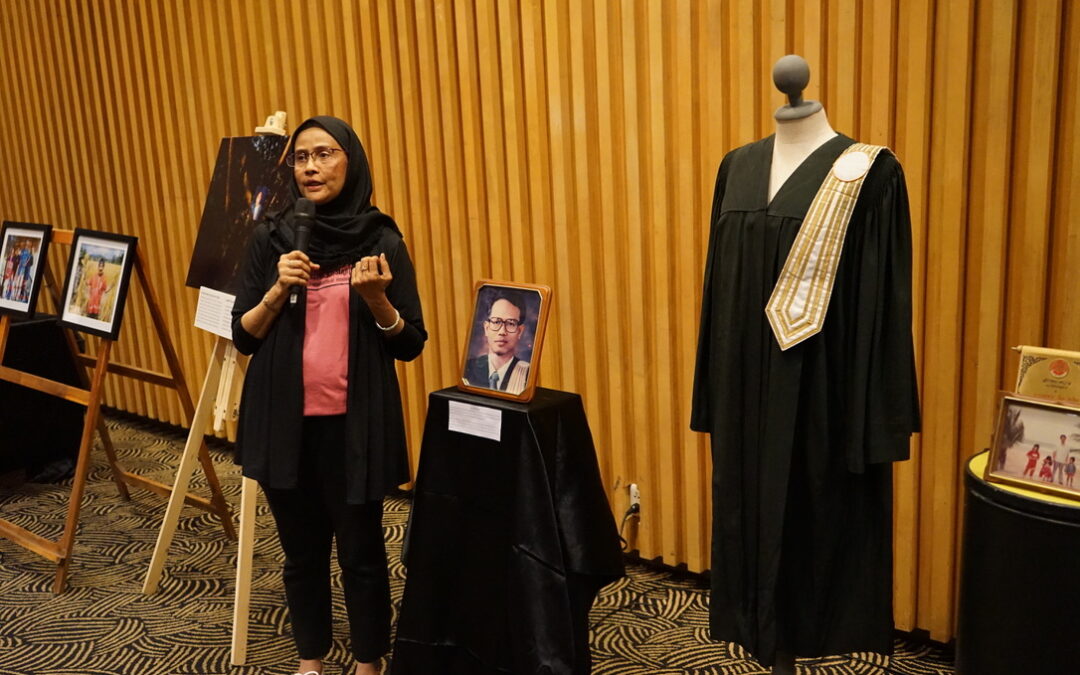
Mar 12, 2020 | News
On 11 March 2020, the ICJ co-hosted a panel discussion and an exhibition entitled “Committed to Memory: The Disappeared and Those They Left Behind.”
The event was held to mark the 16th anniversary of the enforced disappearance of a prominent lawyer and human rights defender Somchai Neelapaijit and other individuals who were subject to apparent enforced disappearance and whose fates remain unknown.
The event was held at Bangkok Art and Cultural Centre (BACC). More than 100 participants attended the event.
Opening remarks were delivered by Jenni Lundmark, Programme Officer, Delegation of the European Union to Thailand, and Associate Professor Dr. Gothom Arya, Adviser of the Institute of Human Rights and Peace Studies at Mahidol University.
Jenni Lundmark highlighted the European Union’s commitment to address torture and enforced disappearance and urged the Thai Parliament to pass pending anti-torture and enforced disappearance legislation without undue delay. Associate Professor Dr. Gothom called on the public to preserve the memory of the Thai persons who were victims enforced disappeared as well as many others whose disappearance were not recorded. He also encouraged the establishment of a network of victims of enforced disappearances to strengthen their advocates’ ability.
The event also featured photos and personal belongings of victims or potential victims of enforced disappearance, including: Somchai Neelapaijit, Thanong Po-Arn, Porlajee “Billy” Rakchongcharoen, Kamol Laosophaphan, Jahwa Jalo, Surachai Danwattananusorn, Siam Theerawut and Den Khamlae. For some of these cases, there has been a failure of authorities to conduct a prompt, effective, impartial and independent investigation into their cases. During the event, family members of the victims described stories from photos and personal belongings of the “disappeared” that were exhibited.
The panel discussion focused on progress of the investigations into enforced disappearances and evaluated the progress in developing legislation in Thailand to address this critical issue. The speakers included Angkhana Neelapaijit, wife of Somchai Neelapaijit; Thipwimon Sirinupong, lawyer who is representing Porlajee “Billy” Rakchongcharoen’s family; and Sanhawan Srisod, ICJ’s legal adviser.
During the discussion, speakers expressed concern at the recurrent delays in the amendment and enactment of the law against torture and enforced disappearance which will be critical for ensuring accountability and justice for victims of enforced disappearance. They also regretted that the latest Draft Act, after several rounds of revisions and public hearings, still had not addressed many of the principal shortcomings which the ICJ and other stakeholders and experts have indicated need necessarily be amended in order to bring the law into line with Thailand’s international human rights obligations.
The key concerns include the incomplete definitions of the crimes of enforced disappearance, the absence of provisions concerning the continuous nature of the crime of enforced disappearance and statute of limitations for torture and enforced disappearance crimes, and the inadequacy of provisions concerning safeguards against enforced disappearances.
Background
Somchai was stopped at a Bangkok roadside on 12 March 2004 and pulled from his car by a group of men. He has not been seen since.
At the time, Somchai was defending clients from Thailand’s restive southern provinces who were accused of attacking a military base as part of the ongoing insurgency in the region. Somchai had alleged police tortured the Muslim suspects.
Since 19 July 2005, DSI has spent more than 14 years and eight months investigating the enforced disappearance of Somchai Neelapaijit. However, there is little information in the public domain regarding its progress.
From 1980 to May 2019, the UN Working Group on Enforced or Involuntary Disappearances has recorded and transmitted 90 cases of alleged enforced disappearance to Thailand. Currently, 79 cases remain outstanding.
Further reading
Ten Years Without Truth: Somchai Neelapaijit and Enforced Disappearances in Thailand
Thailand: continuing delay in the enactment of the draft law on torture and enforced disappearance undermines access to justice and accountability









